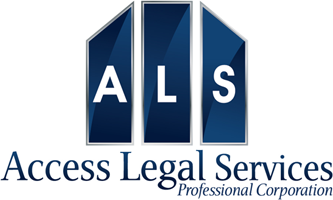Bad Credit Management
Having bad credit can have a negative effect on a person’s life. A low credit score means financial limitations and difficulties. The growing complexity of the financial system has left many in difficult financial positions with mounting debts. To directly deal with this issue, we have designed a program where outstanding debts can be consolidated to reduce interest payments and overall debts, and create a manageable payment plan. If a financial institution has turned a client’s file over to a collection agency, or threatened to take up the matter in a small claim court, we will either negotiate a settlement or represent them in small claim’s court.
The following information is general information only and should not be construed as comprehensive, complete, or as a substitute for legal advice. Please contact a legal professional for a consultation to be aware of your complete legal rights and obligations.
Your Credit Report
The two main credit reporting agencies are Equifax and TransUnion Canada. These agencies collect credit and debt information from banks, lenders, credit card companies, leasing firms, courts, and others. Credit bureaus do not report your annual personal income, family income, or how much you have in the bank; they only report your debt, available credit, and the public record (bankruptcies, court judgments, etc.). Your credit history is kept on file for six years from the date of last activity. Records of credit inquiries by lenders and others needing credit approval is kept on file for three years. This credit information is only as good as what is supplied to these agencies. Another person’s debt may be recorded as yours because of a filing error or a case of mistaken identity. It is often up to you to correct an error in your record.
Bankruptcy: Pros & Cons
Filing for personal bankruptcy is usually the last and only resort for Ontarians in financial situations deemed too difficult to recover from. There are important considerations and legal issues that need to be understood about the bankruptcy process before a person can clearly consider this drastic final step. The applicant must generally follow a six step legal process:
1. Find a trustee in bankruptcy
2. Meet with trustee
3. File paperwork
4. Attend creditors’ meeting
5. Attend financial counselling seminars with trustee
6. Final discharge
The sixth and final step in a bankruptcy procedure is your final discharge. Being discharged from bankruptcy means that you are out of bankruptcy and your debts are officially cleared. It is important to note that this excludes certain loans, such as secured loans and student loans. If it is your first time filing for bankruptcy, you will normally receive an automatic discharge approximately nine months after you initially filed.
Being discharged from bankruptcy generally marks the end of your bankruptcy procedure. However, your bankruptcy stays on your credit record for seven years from the date of your discharge. This will affect your ability to get loans and other kinds of credit in the future.
Although personal bankruptcy allows you to make a fresh start, free of most of your debts, if you have a steady income and a satisfactory credit rating, you may want to reconsider. If you are unsure, contact us and we will consult with you on your specific financial situation and the appropriate steps.
Please contact us for more information


ACCESS LEGAL SERVICES PROFESSIONAL CORPORATION
1110 Finch Ave. West Suite 614
Toronto, Ontario
M3J 2T2
Phone : (416) 733-8880
Fax : (416) 946-1112
Email: consultation@accesslegal.ca


